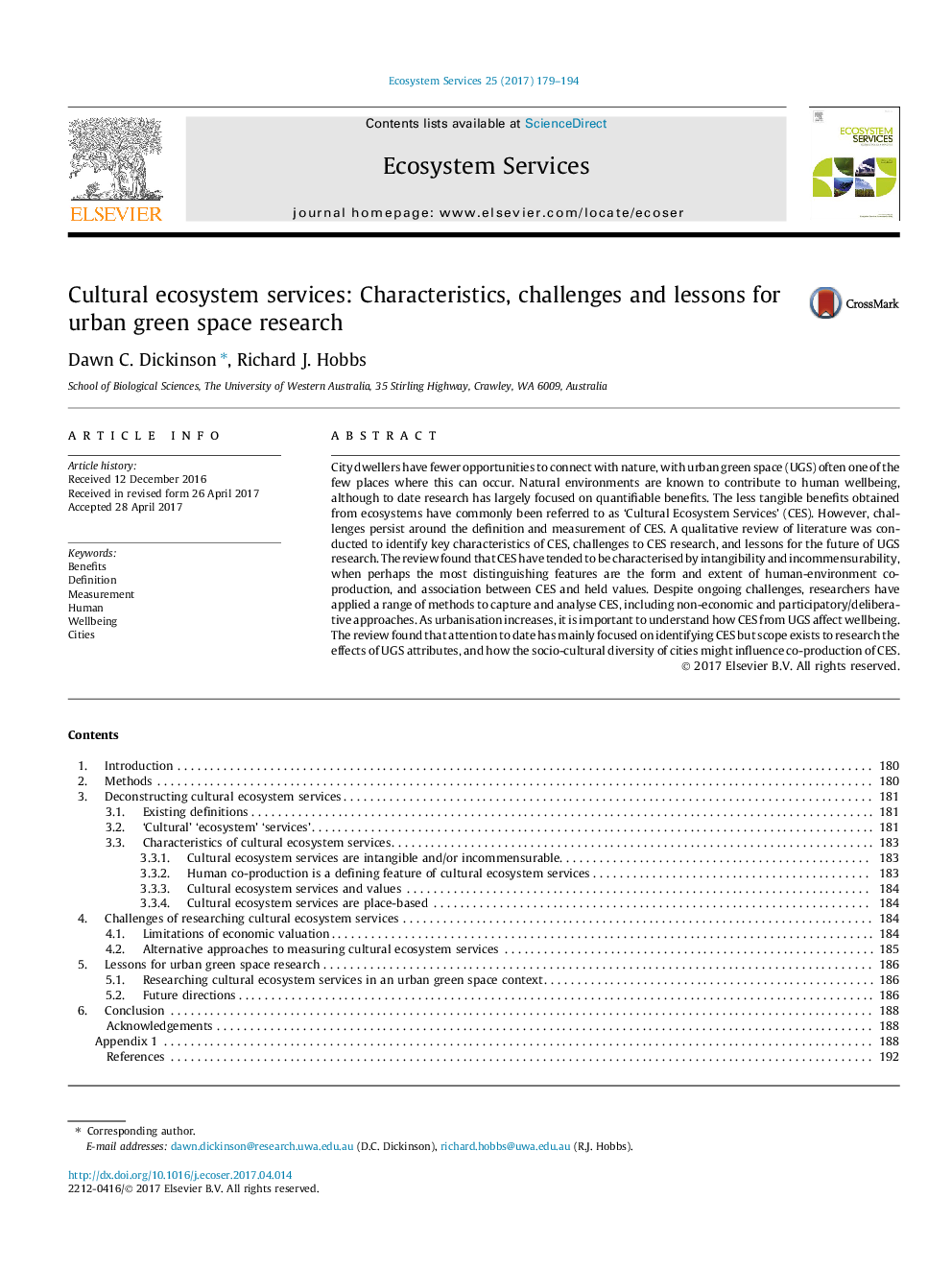| Article ID | Journal | Published Year | Pages | File Type |
|---|---|---|---|---|
| 4761616 | Ecosystem Services | 2017 | 16 Pages |
Abstract
City dwellers have fewer opportunities to connect with nature, with urban green space (UGS) often one of the few places where this can occur. Natural environments are known to contribute to human wellbeing, although to date research has largely focused on quantifiable benefits. The less tangible benefits obtained from ecosystems have commonly been referred to as 'Cultural Ecosystem Services' (CES). However, challenges persist around the definition and measurement of CES. A qualitative review of literature was conducted to identify key characteristics of CES, challenges to CES research, and lessons for the future of UGS research. The review found that CES have tended to be characterised by intangibility and incommensurability, when perhaps the most distinguishing features are the form and extent of human-environment co-production, and association between CES and held values. Despite ongoing challenges, researchers have applied a range of methods to capture and analyse CES, including non-economic and participatory/deliberative approaches. As urbanisation increases, it is important to understand how CES from UGS affect wellbeing. The review found that attention to date has mainly focused on identifying CES but scope exists to research the effects of UGS attributes, and how the socio-cultural diversity of cities might influence co-production of CES.
Related Topics
Life Sciences
Agricultural and Biological Sciences
Agricultural and Biological Sciences (General)
Authors
Dawn C. Dickinson, Richard J. Hobbs,
